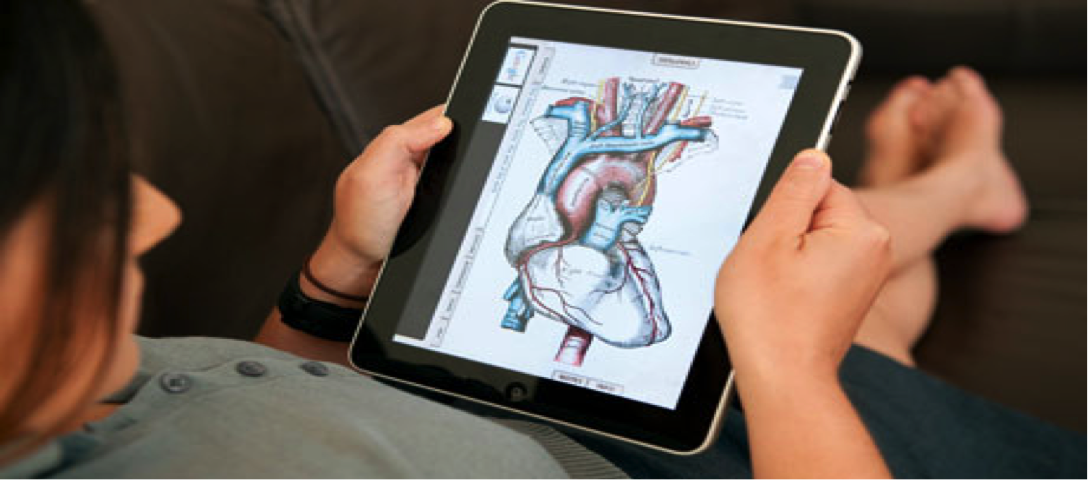We live in a day and age when even diagnostic labs have had to walk to our homes to collect our samples, and the reports can now be seen online….time has become money…and convenience our priority. We are running our lives and not living it anymore. Technology has become our lifeline and it has lead to many innovations .without a doubt, our mobile smartphones and tablets are the most powerful devices we own today. The adoption of mobile technologies in every dimension of life has been phenomenal. In the span of two decades, ever-more sophisticated mobile technology has fundamentally altered the ways in which we communicate and conduct business. The disruptive power of these new technologies and the accompanying waves of innovation they have sparked are transforming the health care industry, propelling stakeholders to reassess and repurpose how they provide services.
Fueled by consumer adoption of mobile technologies, the mobileHealth market is expanding rapidly, and it is forecasted to reach $58.8 billion by 2020.With Google reporting an astonishing 1.5 million new Android devices activated every day.
The smartphone has indeed become an individuals’ best friend – from giving GPS directions, functioning as a wallet, alarm clock, calendar, filing cabinet, and personal library, and offering an astounding array of health care apps that prod and poke the phone’s owner to exercise, lose weight and improve their overall health, to track their activity during the day, sleep pattern at night, as well as log food intake and mood to give a better overall picture of health it helps in making more informed decisions about their health. Data collected regarding calories burned, steps taken, heart rate allows users to track their progress and create small, achievable goals to begin establishing healthy habits. The future of health care truly is in the palm of our hands.
It no longer holds true that only the advent of sharp pain in our chest or a colleagues portable blood sugar monitoring machine reminds us of visiting a doctor or to go for routine health checkup. As the size of the pacemaker is becoming smaller and smaller each day to fit in our lifestyles more and more physicians and patients are using an increasing number of mobile healthcare apps which enable an almost unlimited range of health-related functions, from an individual patient controlling their diabetes, to monitoring diet & exercise and even, to tracking medical treatments and progress. Devices are becoming smaller, faster and smarter. By 2017, half of the world’s more than 3.4 billion smart phone users will have downloaded health-related apps.
Top downloaded health apps relate to following areas
- Exercise
- Medical reference
- Weight loss
- Sleep and meds
- Women’s health
- Tools/instruments
Consumers are driving mobile Health growth
Similar to other industries, consumers are driving much of the demand for mobile Health technologies and applications. It’s the age of consumerism and consumer commands and his demand are met. As after sales service is becoming more and more important for consumers .How can healthcare industry be far behind. Mobile apps are enhancing overall consumer engagement in health care by increasing the flow of information; lowering costs through better decision-making, fewer in-person visits, and greater adherence to treatment plans; and improving satisfaction with the service experience.
The following are among advances in mobile products and services that will benefit the health care industry:
- Greatly expanded memory and stronger processing capabilities
- Geospatial tracking
- Movement-enabled/accelerometers that track location and movement
- Touch-screen technologies
- Cheaper unit costs and cheaper connection/data plans
- Extended functionality through the addition of apps
- Immersive, full-screen apps
- Remote monitoring
Mobile apps are helping patients monitor their health consistently, increase health awareness, and gain knowledge of specific diseases and treatments for self-care. Hospitals are enhancing the patient experience by leveraging mobile Health solutions for timely and accurate diagnosis, follow-up, point of care services, patient engagement, and improved outcomes. Already, over 4 million free and 300,000 paid healthcare and fitness apps are downloaded every day. Mobility also provides a range of tools to caregivers and administrators alike to involve, monitor and enhance patient experience. Interactive surveys, demos, personalized content all aid the patient towards a deeper understanding of his/her treatment options and can positively affect outcome and satisfaction.
The Rise of mobile Health Initiatives helping doctors
A 2011 global survey of 114 nations undertaken by the World Health Organization found that mobile Health initiatives have been established in many countries, but there is variation in adoption levels. Through patient monitoring and self-tracking, doctors can be helped to catch early signs of disease. A mobile platform can be developed to collect active data (patient-reported) and passive data (who you interact with through your phone and how far you travel during the day), right from a smartphone. This data is available via a web dashboard to authorized doctors and other health care providers who can use it to efficiently manage hundreds of patients.
By tracking personal behavioral data, doctors can better understand the health of their patients, provide improved diagnoses and care recommendations, and be alerted quickly to signs of pending health issues.
Studies show that more than half of prescribed medications are never consumed, and it’s difficult and impractical for doctors to follow up and ensure that patients continue to take medications as prescribed. Mobile applications can bridge the gap between doctor and patient.. Physicians will be able to monitor large numbers of patients remotely, answer their questions quickly, and invite them for an office visit only when necessary. Moreover, doctors will be more informed—and therefore higher quality and decisions will reflect the best care, because they will have more data that is digital and easily accessible.




